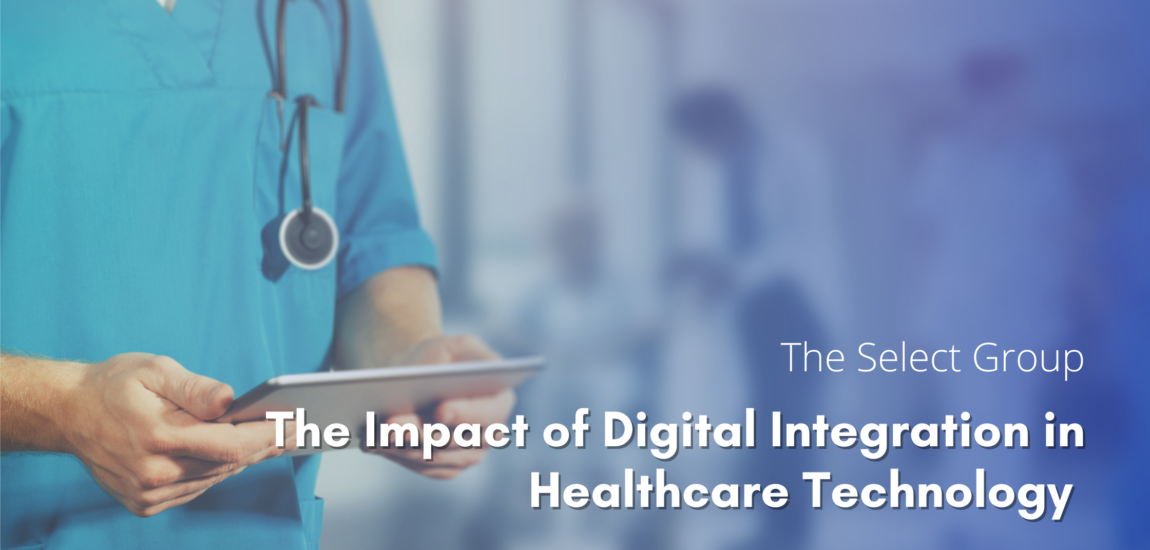The Impact of Digital Integration in Healthcare Technology
Author
Ben Hampshire
Publish Date
November 22, 2021

An increased focus on technology and the impacts of interconnected applications are causing the healthcare industry to experience an unprecedented and rapid evolution. Specifically, the need for an efficient, integrated healthcare system to coordinate service delivery across a wide array of disjointed systems. To do this effectively, these systems must correlate relevant clinical and enterprise information, such as billing, with patients regardless of where the services were delivered. In addition, a healthcare enterprise system must collect, organize, and extract value while providing healthcare and controlling costs, emphasizing the need for technological integration.
Below are fundamental building blocks of a health system, inclusive of the dependencies between disparate systems and applications that are likely to exist:
- Service Delivery includes quality, access, safety, and coverage.
- Workforce consists of human resources management, skills, and policies.
- Information System ensures the production and analysis of information.
- Medical Products includes procurement and supplies needed to ensure equitable access, assured quality, and cost-effective use.
- Financing encompasses funds for health and allocates resources, purchases goods, and services to improve quality, equity, and efficiency.
- Leadership and Governance ensures the existence of strategic policy frameworks, effective oversight and coalition building, provision of appropriate incentives, and attention to system design and accountability.
- People refers to individuals, households, and communities, such as civil society, consumers, patients, payers, and producers of health. This is inclusive of knowledge, attitudes, behaviors, and practices among these individuals.
As technology continuously requires system upgrades, most healthcare systems have invested a lot of time and money in increasing operational efficiencies while minimizing costs. However, to provide appropriate care, it’s imperative for the patients, providers, hospitals, and broader healthcare industry to streamline information flow and communications. Additionally, in healthcare enterprise applications, software quality assurance is essential to ensuring the safest and most reliable software is being utilized to support the healthcare system.
Software Quality Assurance
A software quality assurance (QA) organization plays a role in any software development lifecycle. The integration of software quality assurance, analysis, verification, validation, and independent testing activities greatly enhance the safety, reliability, and maintainability of any critical software system. The healthcare industry is regulated by several government and non-government entities, and these must be considered when testing the software. Additionally, to minimize risk to organizations that do not adapt quickly to change, software quality assurance organizations must also consider the implementation of governance, business planning, and information technology. With this, finding enough resources to properly build an effective QA team is a constant challenge for many organizations, including healthcare.
To balance complexity and practical innovation, healthcare organizations look to leverage well-known industry best practices and principles, such as Agile. In our experience across many market industries, Agile is essential for transformative projects and has enabled organizations to adapt and adopt innovation effectively. In addition, some fundamental principles of Agile, including addressing customers’ needs and embracing change, can help increase the healthcare experience while utilizing the software.
If you are looking to further increase the healthcare experience, our TSG team will partner with you to drive innovation, technology and system integration, and evolving digital strategy to improve patient health and the overall healthcare experience.
